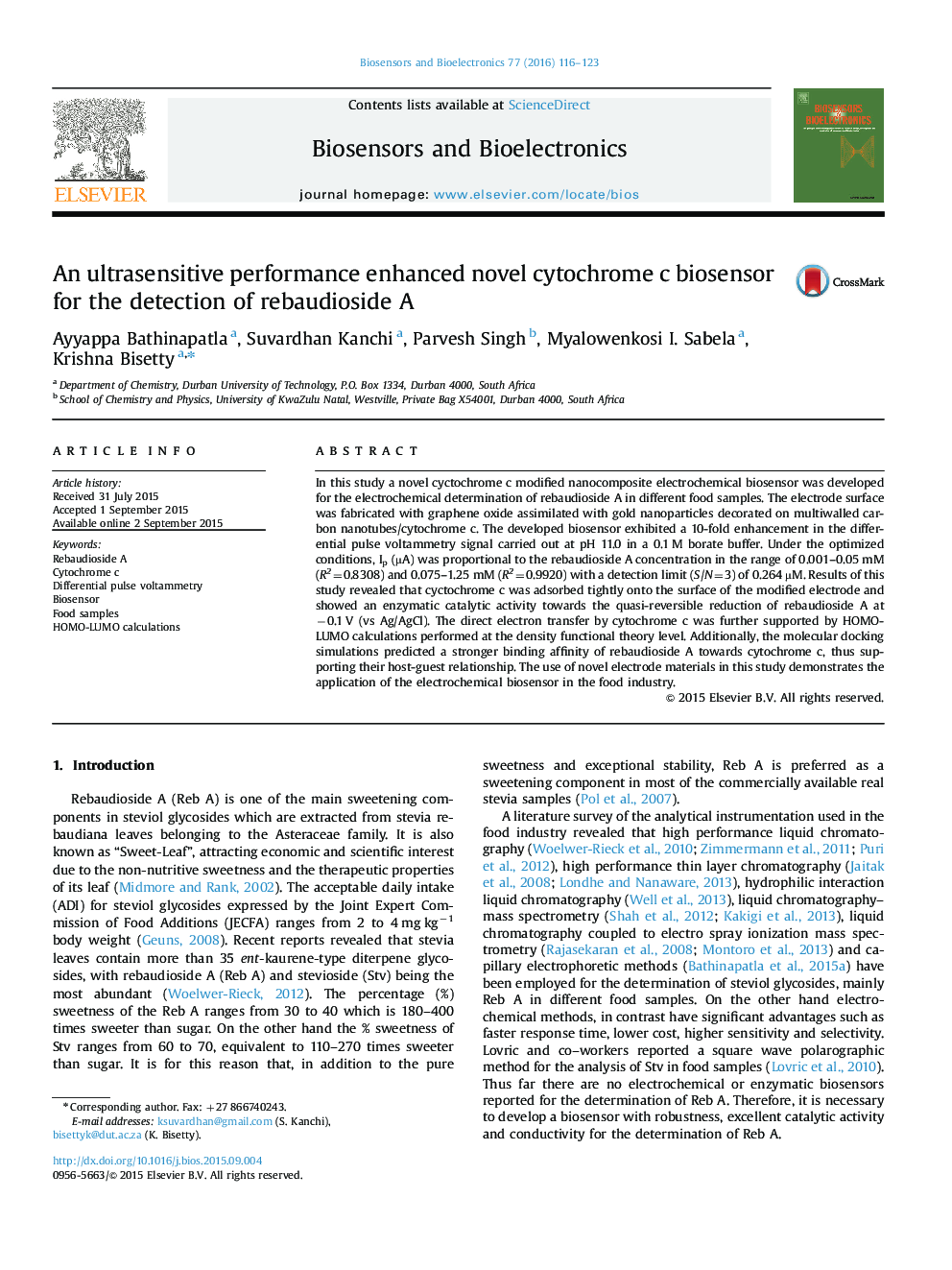| Article ID | Journal | Published Year | Pages | File Type |
|---|---|---|---|---|
| 7231286 | Biosensors and Bioelectronics | 2016 | 8 Pages |
Abstract
In this study a novel cyctochrome c modified nanocomposite electrochemical biosensor was developed for the electrochemical determination of rebaudioside A in different food samples. The electrode surface was fabricated with graphene oxide assimilated with gold nanoparticles decorated on multiwalled carbon nanotubes/cytochrome c. The developed biosensor exhibited a 10-fold enhancement in the differential pulse voltammetry signal carried out at pH 11.0 in a 0.1 M borate buffer. Under the optimized conditions, Ip (µA) was proportional to the rebaudioside A concentration in the range of 0.001-0.05 mM (R2=0.8308) and 0.075-1.25 mM (R2=0.9920) with a detection limit (S/N=3) of 0.264 µM. Results of this study revealed that cyctochrome c was adsorbed tightly onto the surface of the modified electrode and showed an enzymatic catalytic activity towards the quasi-reversible reduction of rebaudioside A at â0.1 V (vs Ag/AgCl). The direct electron transfer by cytochrome c was further supported by HOMO-LUMO calculations performed at the density functional theory level. Additionally, the molecular docking simulations predicted a stronger binding affinity of rebaudioside A towards cytochrome c, thus supporting their host-guest relationship. The use of novel electrode materials in this study demonstrates the application of the electrochemical biosensor in the food industry.
Related Topics
Physical Sciences and Engineering
Chemistry
Analytical Chemistry
Authors
Ayyappa Bathinapatla, Suvardhan Kanchi, Parvesh Singh, Myalowenkosi I. Sabela, Krishna Bisetty,
